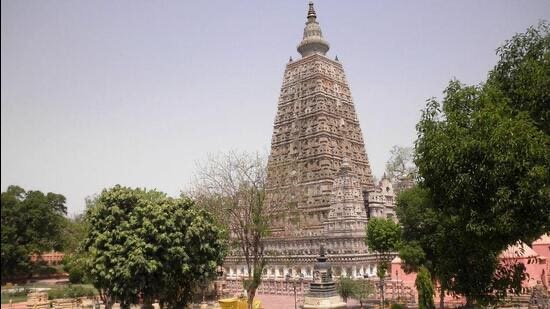The plea challenged the constitutional validity of the Bodh Gaya Temple Act, 1949, which entrusted a nine-member committee with the temple’s management, of which a majority are Hindus. The Supreme Court on Monday refused to entertain a plea that sought handing over exclusive control of the Mahabodhi temple in Bihar’s Bodh Gaya to Buddhists, and asked the petitioner to approach the high court. Refusing to entertain the petition, a bench of justices MM Sundresh and K Vinod Chandran, said, “How can we issue mandamus? You please approach the high court. This is not maintainable under Article 32.”
The petition claimed that the management of the Mahabodhi temple should be with the Buddhists and the Act was unconstitutional for violating the right of Buddhists to profess their religion and manage their religious institutions. “Inclusion of members in the committee who are non-Buddhists i.e. Hindus is violative of protections guaranteed to the Buddhist citizens of India and the Lord Buddha himself guaranteed under Articles 19 (right to fundamental freedoms), 21 (life and liberty), 25 (freedom of religion), 26 (right to administer institutions), 28 and 29 (minority rights) of the Constitution of India,” the petition stated.
Senior advocate Ravindra Laxman Khapre pointed out that due to mismanagement and indifference to the temple, the sacred Bodhi tree at the site is in danger of decay, as found out by a committee of Archaeological Survey of India (ASI). The bench dismissed the petition allowing the petitioner to raise these issues before the high court. “We are not inclined to entertain the petition. Liberty is granted to approach the high court.”
While the definition of Hindus includes Buddhists as well, the religious community was recognised as a minority in 1993 under the National Commission for Minorities Act, 1992. The petition, filed by advocate Jaydip Pati stated that the Mahabodhi temple is the holiest Buddhist shrine in India and is also a World Heritage site since the year 2002, which is not under the exclusive management of Buddhists. It said, “Though Buddhists are defined as being part of Hindus, their independent right to profess their religion is also recognized. The said recognition therefore confers rights of Buddhists to profess their religion as per their own choice.”
The petitioner argued that the surroundings and vicinity of the area, including the area of the temple, which is now under the possession of the Bodh Gaya Temple Committee used to be under control of Lord Buddha. “In effect, the idol of Lord Buddha is the owner of the land. It is therefore submitted that the ownership of the site is vested in Lord Buddha as a juristic person.”



